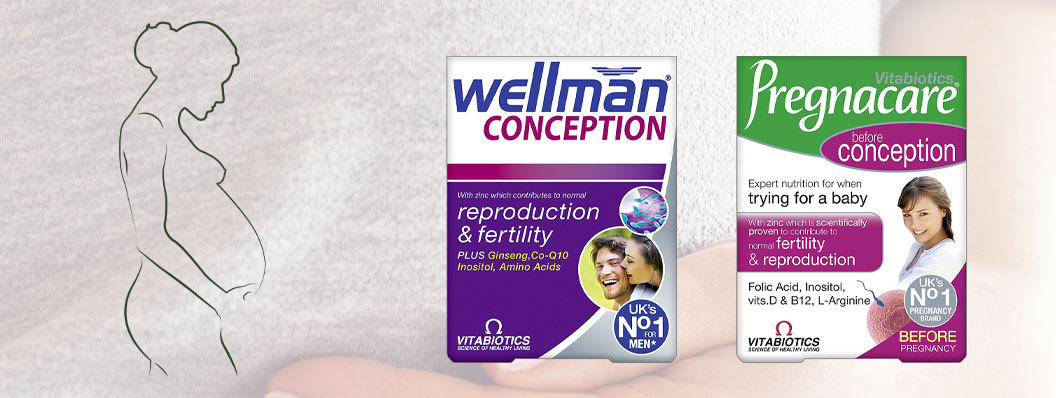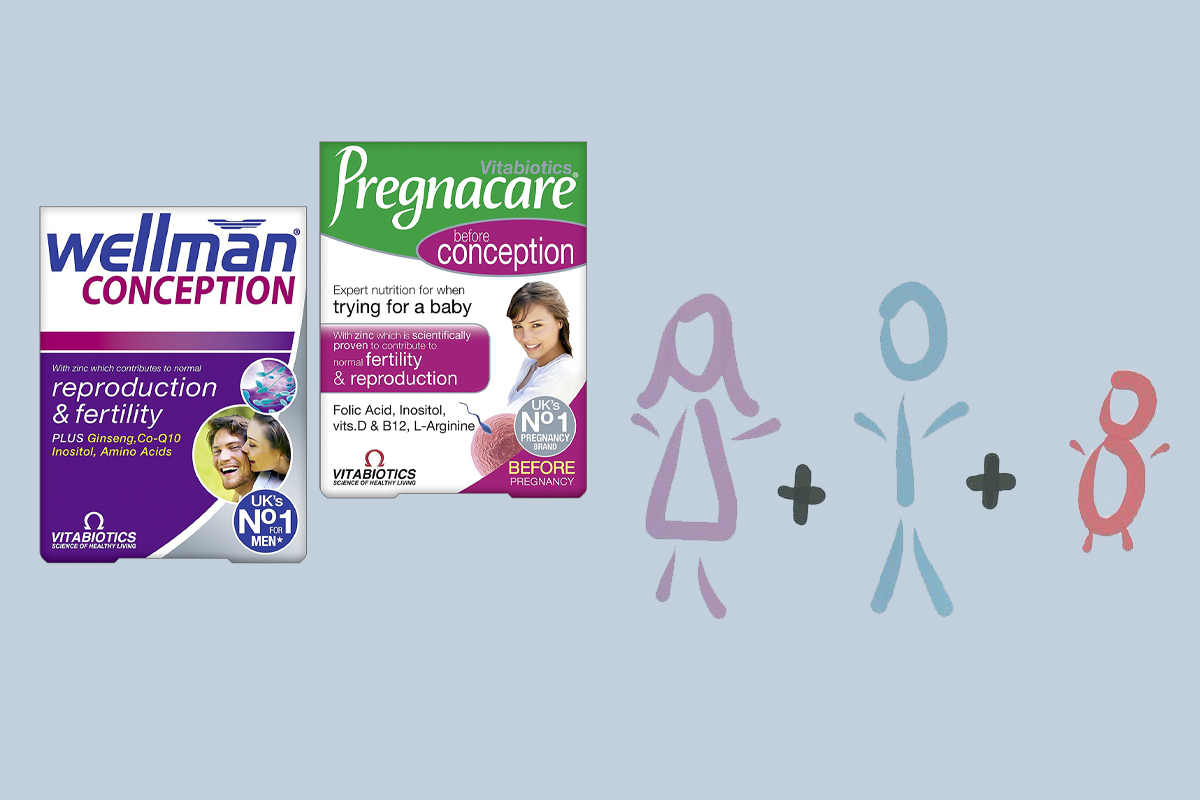Women’s nutritional requirements for conception
Making the decision to plan for pregnancy is the ideal time for you and your partner to review your diet and lifestyle and make changes in order to achieve optimal health before conception. It is also a good time to ensure your intake of micronutrients is increased, particularly those known to be at greater demand during pregnancy including folic acid, vitamin D, calcium, and iron.

What you eat and drink can make a difference to both female and male fertility and the basics are the same for both mums and dads-to-be:
Consume a balanced and varied diet, rich in vitamins and minerals
Eat plenty of fruit and vegetables (at least 5 portions each day) to boost vitamin and mineral intakes
Choose iron-rich protein foods such as lean meats, eggs, beans and lentils
Try to include one portion of oily fish each week, e.g. salmon, trout, mackerel, sardines
Avoid shark, swordfish, and marlin, and limit tuna (fresh and canned) due to high mercury content
Include low-fat dairy foods every day for extra calcium, such as low-fat milk and yoghurts
Choose healthier snacks, such as fresh fruit, dried fruit, and fortified breakfast cereals
Avoid (or limit) alcohol
Give up smoking
Achieve an ideal body weight
Be active on most days
Additionally:
Take a 400mcg (0.4mg) folic acid supplement and choose foods rich in folates from before conception until at least the twelfth week of pregnancy.
Avoid too much vitamin A
Take a daily supplement of 10mcg vitamin D
Take at least 2.5mcg vitamin B12 In addition to eating a healthy diet, some women also choose to take a multivitamin and mineral that is specifically designed for preconception, such as Vitabiotics Pregnacare Conception. You should avoid taking regular multivitamins as these may contain vitamin A and insufficient folic acid and vitamin D.
Pregnancy specific supplements contain the recommended level of 400mcg folic acid and 10mcg vitamin D, plus the vitamins and minerals vital for mother and baby, and are suitable for conception, for all of the pregnancy and whilst breast-feeding.
NB: It is not a woman’s journey only; Men are also involved in this process

Men’s Nutritional Requirements for Fertility
You are your Lifestyle. Stress Levels. Exercise. Alcohol. Everything affects fertility and nutrition is a key piece of that puzzle.
Consume a balanced and varied diet, rich in vitamins and minerals
Consume foods rich in Zinc. Zinc-which contributes to normal fertility and reproduction. Zinc and vitamin C also contribute to the protection of cells from oxidative stress, an important consideration for healthy sperm production as they can be damaged by free radicals. Zinc is arguably one of the most important minerals for the male reproductive system as semen contains 100 times more zinc than is found in the blood. In fact, each ejaculation contains around 0.5mg of zinc. Zinc contributes to the maintenance of normal testosterone levels in the blood
Consume foods rich in Vitamin B6 – contributes to the regulation of hormonal activity,
Eat plenty of fruit and vegetables (at least 5 portions each day) to boost vitamin and mineral intake. Vitamins A, C and D contribute to the normal function of the immune system. Vitamin B12 and B6 contribute to normal red blood cell formation and the reduction of tiredness and fatigue.
Consume foods rich Iron also contributes to normal formation of red blood cells and hemoglobin, which carries oxygen and blood to the body’s organs.
Avoid (or limit) alcohol
Give up smoking
Be active on most days
Additionally:
Take a multivitamin and mineral supplement that is specifically designed for preconception, such as Vitabiotics Wellman Conception. You should avoid taking regular multivitamins, as these may not contain enough antioxidants and sufficient Zinc.
Source: Idah Muthama
Harley’s Digital Marketing
